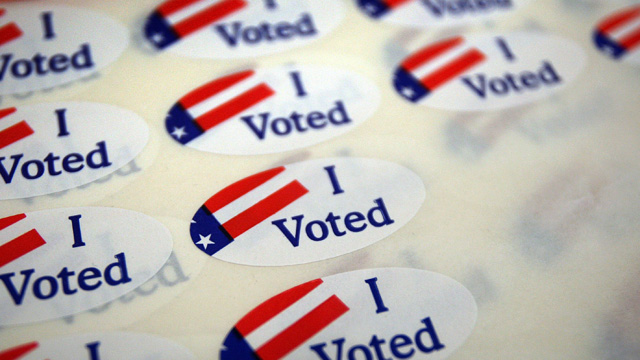"We've got a huge opportunity and San Francisco has a chance to take a real leadership role," Jerdonek said in an interview. If the city succeeds in building and certifying an open-source system, other counties and states could follow suit, he said.
"We live in the center of technology innovation, and every successful startup or technology company uses a lot of open source. And government is pretty much the only part of our society that doesn't."
Voting equipment companies do not want local governments to move in that direction. They say their software is more secure and that open-source systems would make it easier for people to hack into elections.
For years Dominion Voting, formerly known as Sequoia Voting, has supplied the city's elections hardware and software and made its staff available to support using those programs. But its contract expires at the end of the year.
"It's certainly a threat to our business," Steven Bennett, the company's regional sales manager, said in an interview.
He added that Dominion plans to fight to keep its contract with San Francisco.
"At the end of the day, we will be a lower-cost solution to the city, " Bennett said. "Our new voting system has a tremendous amount of efficiency that cuts the cost and increases the transparency of running an election."
Advocates for open source say it allows the public to see the computer code used for vote-counting and to point out its flaws. While its proponents say that leads to more secure systems, some experts say there's no evidence that having more eyes on a voting system makes it less susceptible to cyber attacks.
No local government in the country has fully implemented open-source voting. Los Angeles County and Travis County, Texas, are working to build their own voting systems, but they have yet to commit to open source.
Jerdonek says that many jurisdictions have been reluctant to move forward on the idea because of its initial costs and the work their elections agencies would need to accomplish to satisfy state and federal certifications. "There's an inertia to stay with closed source," Jerdonek said. "It takes a real vision and leadership to do something new."
John Arntz, the city's director of elections, supports the idea of an open-source voting system, but says he's concerned that there's no other jurisdiction it can model its program after.
"Bringing in a new system is never easy," Arntz said in an interview. "It's not simple. It's not like you just plug it in and you're done. It's a culture change."
In 2013, the governor signed SB360 which, among other things, encouraged the development of voting systems that have more accessible source code.
Just over a year ago the Board of Supervisors passed a resolution that required the city to study open-source voting. Last November, the Department of Elections approved a plan asking the mayor and the board to start and fund the work. Arntz said the agency plans to submit a budget request to Mayor Ed Lee at the end of the month, proposing spending $2.3 million toward an open-source system.
